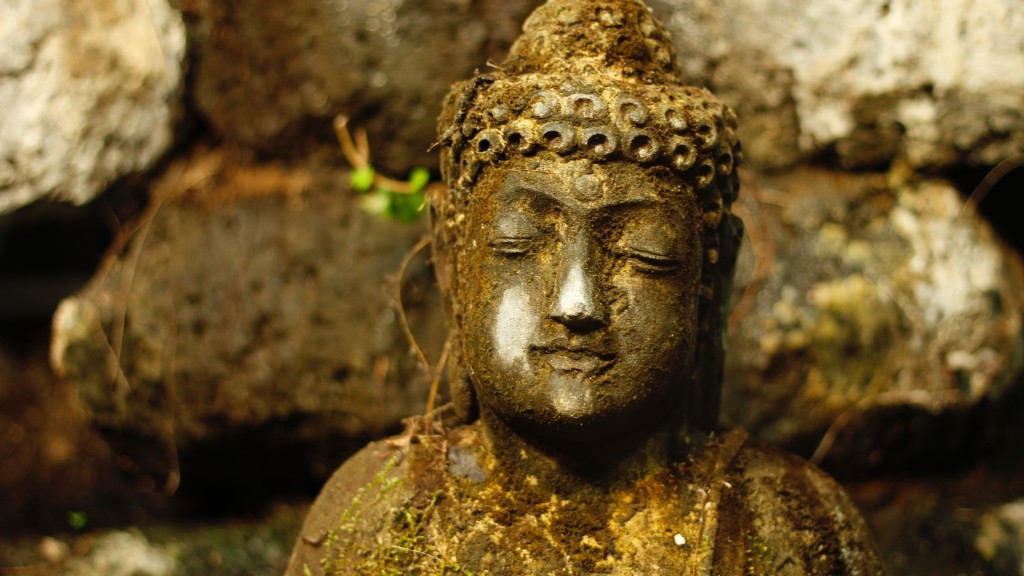Buddhism has a variety of different interpretations, but at its core, it is the belief that all beings are equal and have the potential to achieve nirvana, or enlightenment. This state is marked by liberation from the cycle of rebirth and freedom from suffering. In order to achieve nirvana, Buddhists must follow the Eightfold Path, which includes practices such as moral living, meditation, and wisdom.
Buddhism is a religion that was founded by Siddhartha Gautama in the sixth century B.C.E. Siddhartha Gautama was born into a wealthy family, but he was not content with his life of luxury. He left his family and became a monk, wandering the country and studying different religions. After years of searching, Siddhartha Gautama had a realization that people could find inner peace by following the Middle Way, which is a path between the extremes of self-indulgence and self-mortification. He began teaching his ideas, and his followers became known as Buddhists.
Buddhists believe in the Four Noble Truths, which are that life is suffering, that suffering is caused by attachment to things that are impermanent, that suffering can be ended by letting go of attachment, and that the path to freeing oneself from attachment is the Eightfold Path. The Eightfold Path includes right understanding, right resolve, right speech, right action, right livelihood, right effort, right mindfulness, and right meditation.
What is a simple definition of Buddhism?
Buddhism is a religion that teaches that the human life is one of suffering, and that meditation, spiritual and physical labor, and good behavior are the ways to achieve enlightenment, or nirvana. Buddhism is one of the world’s largest religions and originated 2,500 years ago in India.
A Buddhist is someone who follows the teachings of Buddha. Buddha was a spiritual teacher who lived in India over 2,000 years ago. His teachings promote peace, compassion, and love. Buddhists strive to live in a way that is consistent with these values.
What are the 3 main beliefs of Buddhism
Buddhism is a religion that is based on the teachings of Siddhartha Gautama. The main principles of this belief system are karma, rebirth, and impermanence. Karma is the belief that our actions have consequences, and that our destiny is determined by our actions. Rebirth is the belief that we are reborn into new lives after we die, and that our karma determines our new life. Impermanence is the belief that everything is constantly changing, and that nothing is permanent.
The Five Precepts are basic guidelines for living a moral and ethical life. They are:
1. Refrain from taking life – this means not killing any living being, including animals.
2. Refrain from taking what is not given – this means not stealing from anyone.
3. Refrain from the misuse of the senses – this means not having too much sensual pleasure, such as from watching too much television or indulging in other pleasures to excess.
4. Refrain from wrong speech – this means not speaking lies or saying things that will hurt others.
5. Refrain from intoxicants that cloud the mind – this means not taking drugs or alcohol, which can impair our judgment and lead to bad decisions.
Is Buddhism a faith or religion?
Buddhism is a religion that was founded by Siddhartha Gautama, also known as the Buddha, in India more than 2,500 years ago. With an estimated 470 million followers worldwide, Buddhism is considered one of the major world religions by scholars. The core beliefs of Buddhism include the Four Noble Truths, which teach that suffering is an inherent part of life, and the Eightfold Path, which outlines the steps to be taken to end suffering. Other key beliefs include karma (the law of cause and effect), rebirth (the cycle of life, death, and rebirth), and nirvana (the goal of spiritual liberation).
Buddhism is a religion that does not believe in a unique creator God. It instead believes in a trans-polytheism, which accepts many long-lived gods. However, it also sees ultimate reality, Nirvana, as beyond these gods.
Do Buddhists believe in god?
Buddhism is not a theistic religion, meaning that Buddhists do not believe in a divine being or beings. Instead, Buddhism is focused on spiritual liberation. The Buddha himself rejected the idea of a creator god, and Buddhist philosophers have even argued that belief in an eternal god is nothing but a distraction for humans seeking enlightenment.
Some high level Buddhists have drawn analogies between Jesus and Buddhism, eg in 2001 the Dalai Lama stated that “Jesus Christ also lived previous lives”, and added that “So, you see, he reached a high state, either as a Bodhisattva, or an enlightened person, through Buddhist practice or something like that” Thich .
Buddhism teaches that everyone has the potential to attain enlightenment, regardless of their past lives. In this sense, Jesus and Buddhism are similar in that both religions emphasize the importance of living a good life and working towards spiritual perfection. However, there are also some key differences between the two faiths. For instance, Buddhism does not believe in the concept of a personal savior, and instead emphasizes the importance of each individual taking responsibility for their own spiritual growth.
What is the Buddhist way of life
Buddhists monks typically follow a strict daily schedule that revolves around meditation, study of scriptures, and taking part in ceremonies. There are a number of Buddhist shrines, monasteries, and stupas located all over the world where monks live and practice their religion.
Puja is very important to Buddhists as it is a way for them to connect with the Buddha and to find answers to their problems. Buddhists use a variety of different methods in their devotional practice, which helps them to overcome suffering.
Does Buddhism believe in karma?
Buddhists believe that karma has implications beyond this life. Bad actions in a previous life can follow a person into their next life and cause bad effects (which Westerners are more likely to interpret as ‘bad luck’). Even an Enlightened One is not exempt from the effects of past karma.
The precepts are a key part of the Buddhist path to enlightenment, and are intended to develop mind and character. They include a commitment to abstain from killing living beings, stealing, sexual misconduct, lying and intoxication. By following the precepts, we can make progress on the path to enlightenment.
What is the first rule of Buddhism
The Four Noble Truths are accepted by all schools of Buddhism and have been the subject of extensive commentary. They may be summarized as follows:
The first truth, suffering (Pali: dukkha; Sanskrit: duhkha), is characteristic of existence in the realm of rebirth, called samsara (literally “wandering”).
The second truth is that this suffering has a cause, namely our attachment to things that are impermanent, painful, and changing.
The third truth is that there is an end to this suffering, which is attained by giving up our attachment to things that are impermanent, painful, and changing.
The fourth truth is that there is a path leading to the end of this suffering, which is the Noble Eightfold Path.
From a Buddhist perspective, death is not the end of consciousness but rather a natural part of the cycle of life, death and rebirth. In fact, death can be seen as an opportunity for liberation from the cycle of rebirth.
Does Buddhist believe in heaven?
There is no concept of punishment or reward in Buddhism. There is no divine being who decides who goes to hell or heaven. There is merely the illusory results of our thoughts, words and deeds, which we call karma.
Buddhists strive to end suffering by following the path of the Buddha and practicing the Noble Eightfold Path. The main Buddhist values are love, wisdom, goodness, calmness, and self-control. Buddhists believe that all things are interconnected and interdependent, and that everything is constantly changing. The goal is to see things as they really are and to live in the present moment.
What is the Buddhist holy book
Buddhist scriptures are a collection of texts that were traditionally memorized and recited by monks after the death of the Buddha. These texts were eventually written down and compiled into collections called suttas or sutras. The Buddhist Canon includes the Vinaya Pitaka, which contains the monastic rules, and the Abidhamma/Abhidharma, which are the philosophical texts.
Buddhists worship at temples or monasteries as a way to meditate and pray. Some also set up shrines at home to worship privately. Buddhists offer fresh flowers, lights, and lamps, or burn fragrant incense at shrines with images of the Buddha. These acts pay respect to the Buddha and make merit for the devotee.
Warp Up
Buddhism is a religion based on the teachings of Siddhartha Gautama, who was born in Nepal in the 6th century BCE. Gautama taught that the way to end suffering is to live in a way that is moral and ethical, and to let go of our attachments to things that are impermanent.
In conclusion, Buddhism is a religion and philosophical tradition that originated in India. Buddhism emphasizes the teachings of the Buddha, who is seen as a supreme teacher. The main teaching of Buddhism is the Four Noble Truths, which focus on the idea of suffering and how to end it. The goal of Buddhism is to achieve nirvana, which is a state of complete peace and freedom from suffering.





